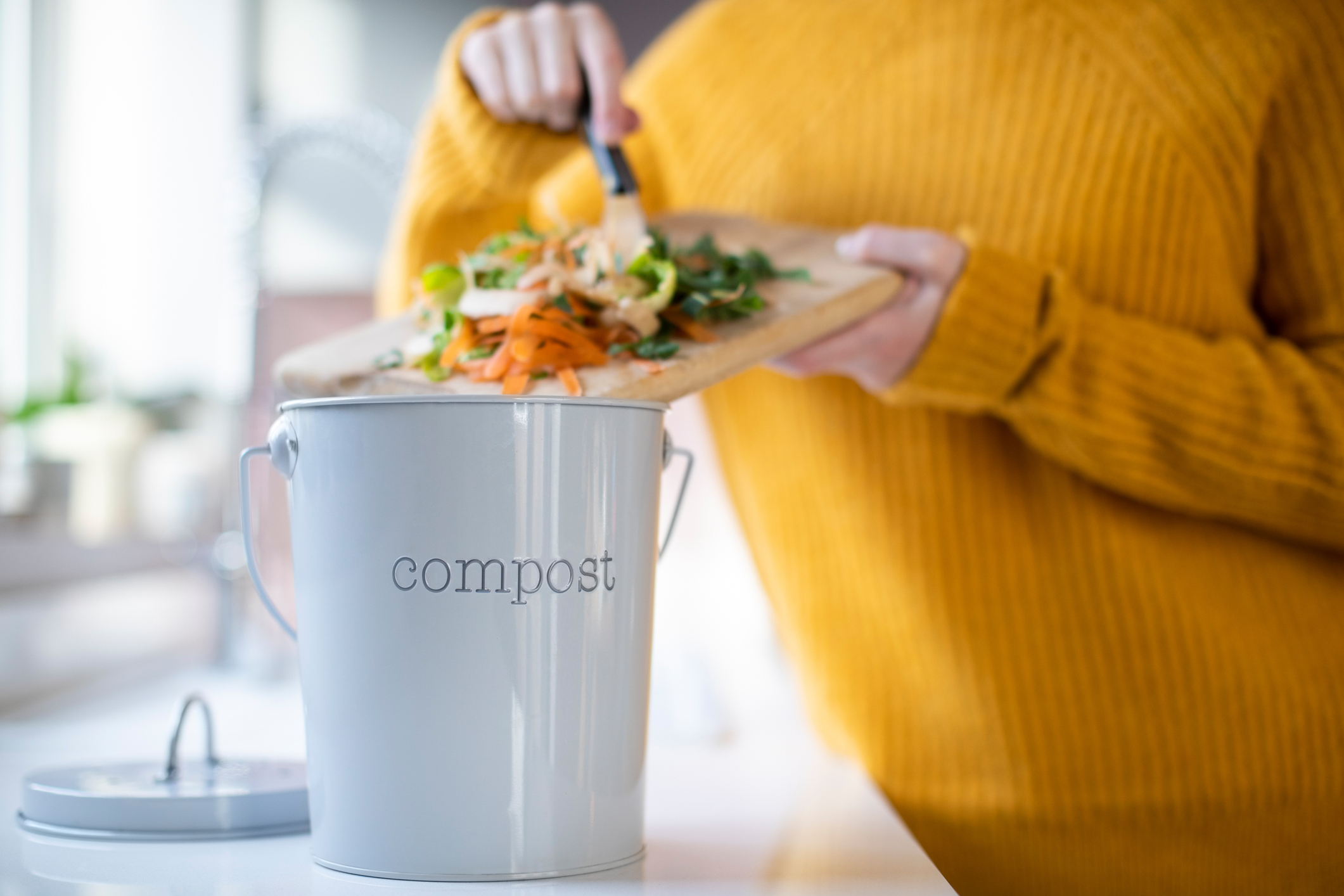As planting season approaches and gardeners of all types plan for their summer harvest, more people are returning to the practice of composting to help feed their plants and reduce their impact on the environment. For people who only grow a few plants on their deck or balcony, composting has come a long way as an accessible practice that helps reduce the carbon footprint people leave on the planet.
According to a recent Washington Post report, composting can significantly reduce the amount of food waste that winds up in landfills where it creates methane gas that contributes to global climate change. Food waste is the biggest source of waste in landfills but it could be used to grow new food with a little effort.
Many municipalities and companies provide compost collection to be used in public spaces or sold for use on farms or in residential gardens. But even if you don’t have composting services in your community, or a large garden to use compost, there are a number of community gardens, composting facilities and farmer’s markets that accept compost.
To keep compost scraps from becoming smelly, a well-sealed container is a must. Among the items that can be composted, fruit and vegetable scraps, egg shells, coffee grounds, tea bags, nut shells, lawn clippings and shredded paper will all make excellent compost. Plants treated with chemical pesticides, black walnut tree leaves or sticks, pet waste, coal or charcoal ash and any diseased plants should not be composted.
Although meat or cheese scraps, fats and grease can technically be composted, they may cause an odor in your kitchen you find unpleasant. But there are many countertop compost bins available on the market – some with charcoal filters or biodegradable liners to keep odor and mess at bay. Meat, bones and dairy products may also attract animals, especially skunks, as well as rodents and flies.
For people who have a larger garden space at home, an outdoor tumbler composter can turn kitchen scraps into compost in about six weeks. Electric models speed up the process and worm composting can generate good plant fertilizer at a low cost with minimal effort. Those with limited space in an apartment or condo may want to give blender composting a whirl. The Vitamix compact FoodCycler turns food scraps into fertilizer that can be poured directly over plants.
To find a composter to drop off food scraps, follow this link to the FindAComposter website.






Add Your Voice
0 Comments
Join the Discussion